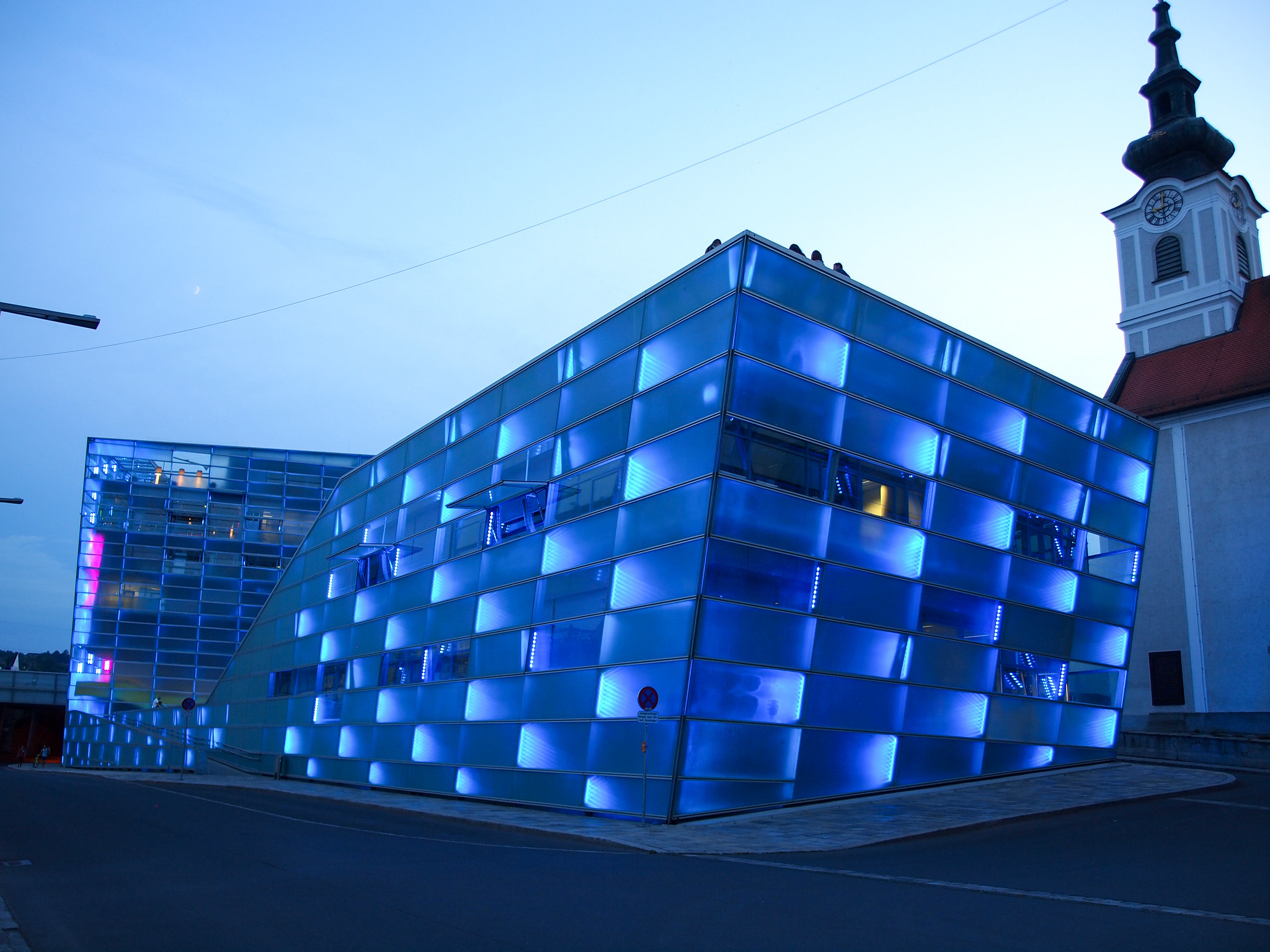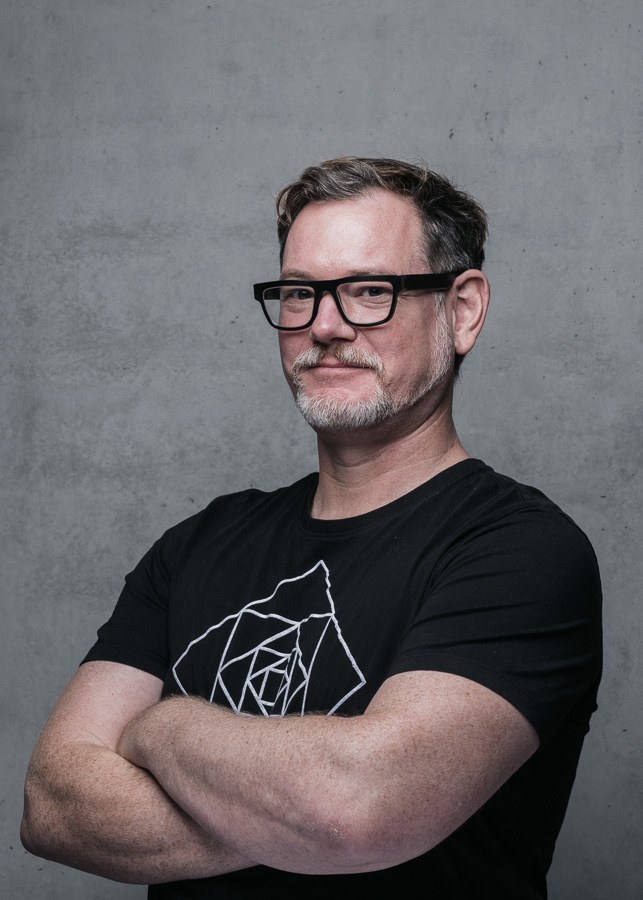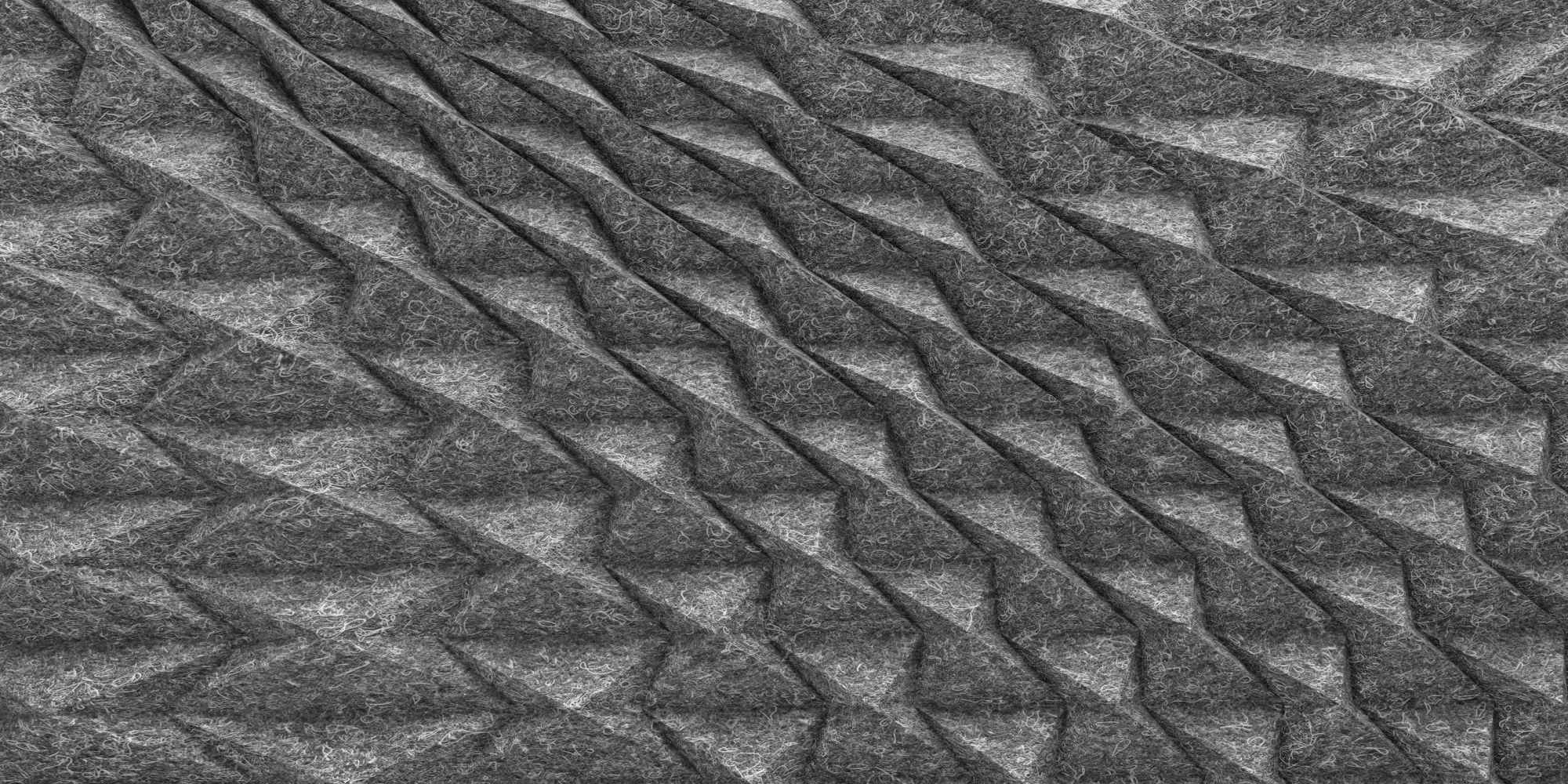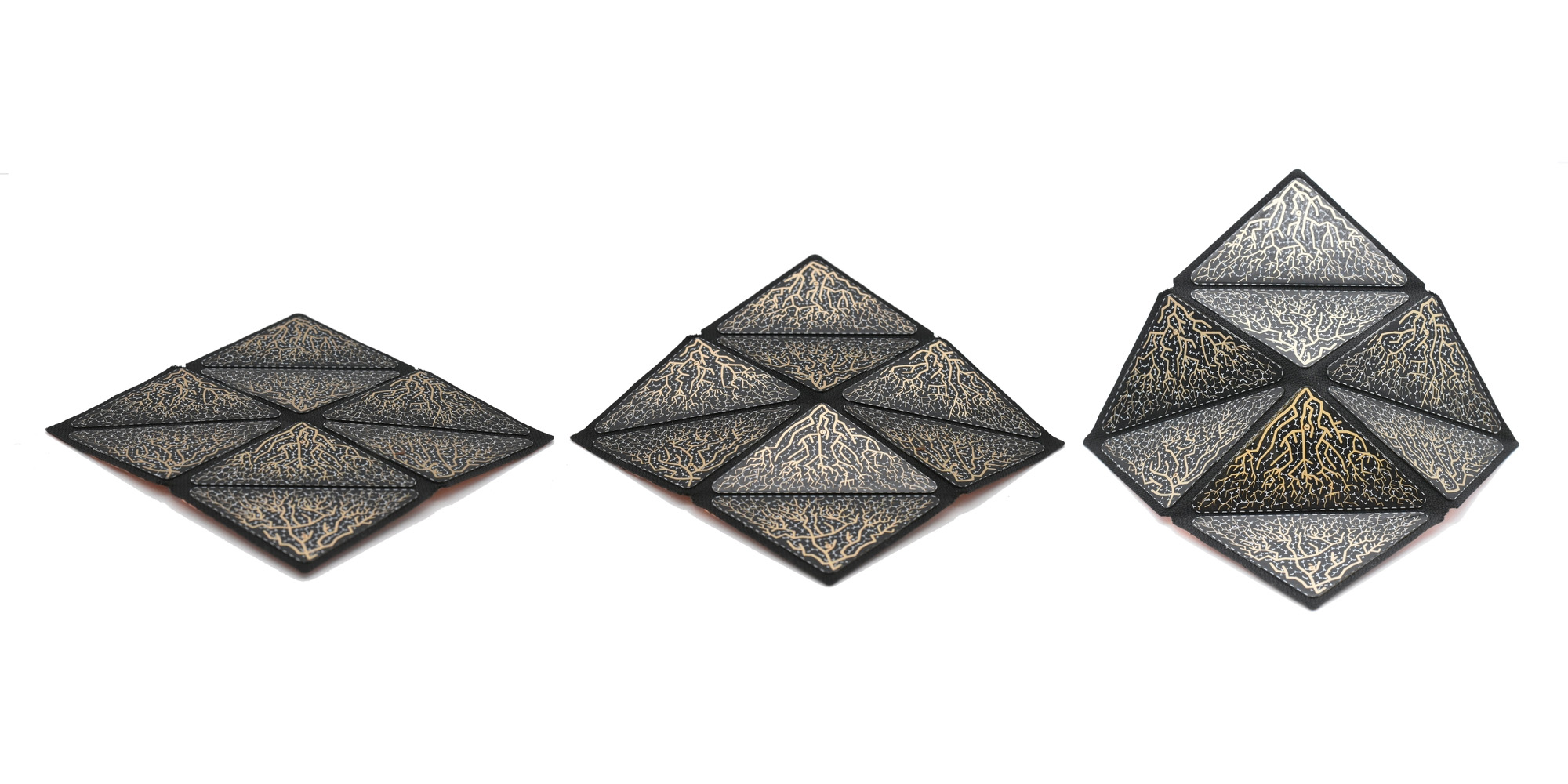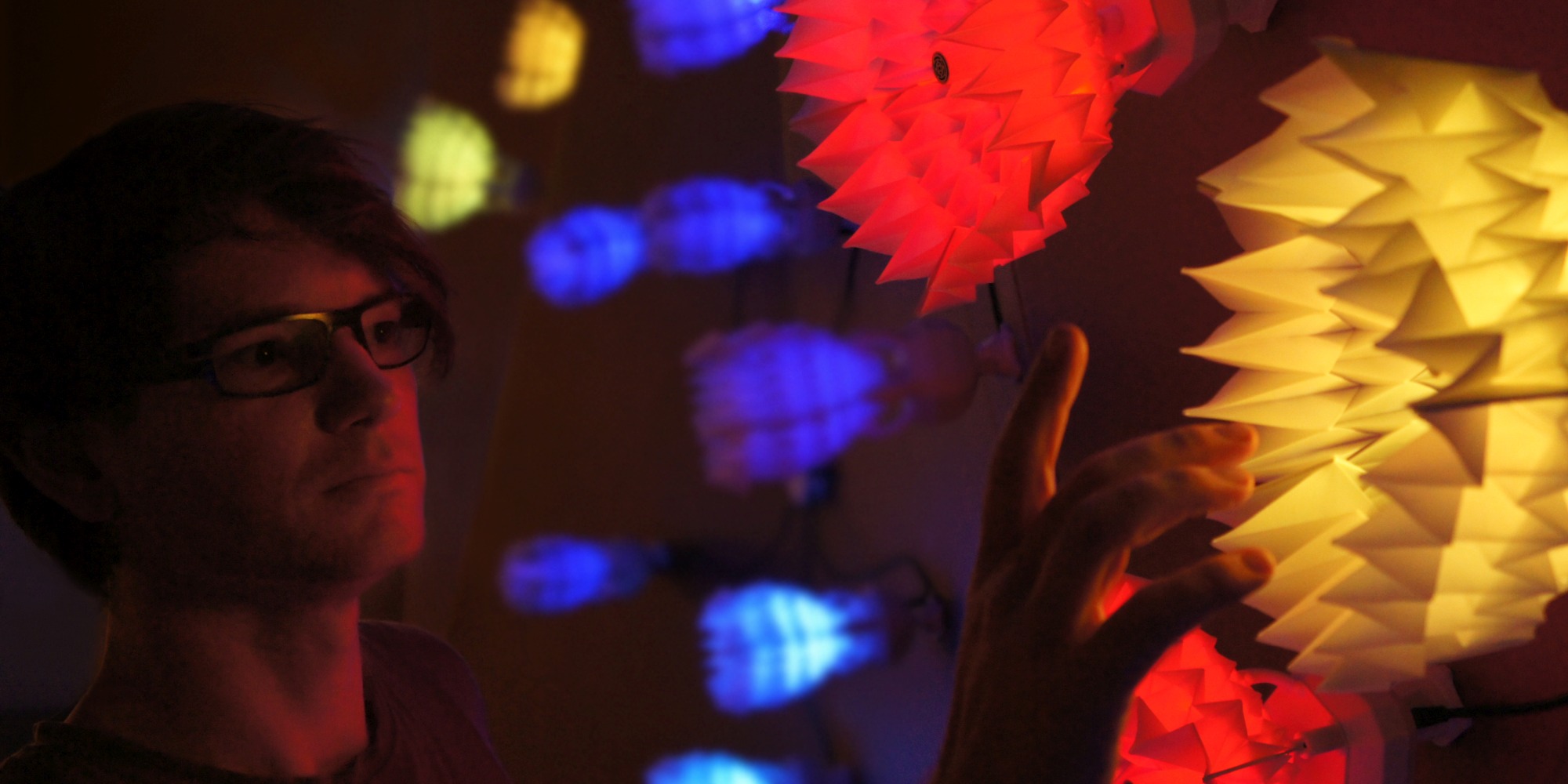„Die Natur ist die ultimative Origami-Künstlerin, ihre Entwürfe werden die Zukunft der Robotik inspirieren.“
Matthew Gardiner ist Head of Art Science Research Strategies und Key Researcher für Origami Robotics am Ars Electronica Futurelab. Seine Arbeit konzentriert sich auf den Aufbau von Kompetenz und die Förderung nicht-traditioneller Forschungsmethoden und neuer Formen des Wissens durch künstlerisch-wissenschaftliche Praxis.
Matthew Gardiner ist ein weltweit führender Experte auf dem Gebiet der Oribotik. Er hat den Begriff geprägt und Pionierarbeit geleistet bei der Verschmelzung von Origami, Faltung und Robotik. Mit seinen Generationen von Oribotik-Kunstwerken umfasst Gardiners künstlerischer Kontext teambasierte Forschung in kommerziellen Institutionen und Universitäten sowie individuelle Kunstwerke. Seine Erfahrung erstreckt sich auf ästhetisches und interaktives Experience Design, digitale Fertigung, Rapid Prototyping, Origami auf Expertenniveau und das Schreiben von Code.
Der Innovator kam 2010 als vom Australia Council for the Arts unterstützter Artist in Residence zum Ars Electronica Futurelab. In dieser Zeit produzierte er sein Hauptwerk Oribotics [the future unfolds] und wurde später Mitglied der Research and Innovation Group als Key Researcher im Bereich der funktionalen Ästhetik. Gardiner war maßgeblich an der Kuration und Produktion der Vorzeigeausstellung Project Genesis zum Thema Synthetische Biologie beteiligt, die aus dem Workshop-Programm Living Logic im Rahmen des dreijährigen FP7-Projekts Studiolab der Europäischen Union hervorgegangen ist.
Zu den aktuellen Forschungsaktivitäten gehören eine Doktorarbeit zum Thema „Folding and Technology“ und ein großes, vom FWF PEEK gefördertes Kunstwissenschaftsforschungsprogramm: ORI* On the Language and Aesthetics of Folding and Technology.
Gardiner ist der Bestseller-Autor von „Everything Origami“ und war von 2003 bis 2009 künstlerischer Leiter von Folding Australia.
Zentrale Arbeiten
Zusätzliche Informationen
Zentrale Publikationen
Gardiner, M. (2019). [Thesis] ORI* on the Aesthetics of Folding and Technology [University of Newcastle].
Gardiner, M. (2011). Oribotics: The Future Unfolds. In Patsy Wang-Iverson, Robert J. Lang, and Mark Yim (Ed.), Origami 5: Fifth International Meeting of Origami Science, Mathematics, and Education. CRC Press.
Gardiner, M. (2018b). ORI* The Art and Science of Origami and Technology Works 2015—2017. (1st ed., Vol. 1). ISBN: 9780648407607. Matthew Gardiner.
Gardiner, M., Aigner, R., Ogawa, H., & Hanlon, R. (2018). Fold Mapping: Parametric Design of Origami Surfaces with Periodic Tessellations. 7th Origami Science Mathematics and Education Conference. 7OSME, Oxford, Great Britain.
Gardiner, M., Aigner, R., Ogawa, H., Hanlon, R., & Reitboeck, E. (2018). Fold Printing: Using Digital Fabrication of Multi-Materials for Advanced Origami Prototyping. 7th Origami Science Mathematics and Education Conference. 7OSME, Oxford, Great Britain.
Gardiner, M., & Gardiner, R. (2012). The functional aesthetic of folding, self-similar interactions. TEI ’12: Proceedings of the Sixth International Conference on Tangible, Embedded and Embodied Interaction, 19—22.
Gardiner, M. (2015). Folding and unfolding a million times over: Longevity, origami, robotics and biomimetics as material thinking in Oribotics. Symmetrion, 26(2), 189—202.
Gardiner, M. (2007). The code in the fold. Origami as art and Science. Bell on the Hand, Future Design Institute, Tokyo, 2, 24—29.
Gardiner, M. (2010b). Oribotics [Futurelab] The Future Unfolds. In Ars Electronica 2010: Repair—Sind wir noch zu retten (pp. 278—282). Hatje Cantz.
Gardiner, M. (2008). Everything Origami. Hinkler Books Pty, Limited.
Gardiner, M. (2013a). Designer Origami. Hinkler Books Pty, Limited.
Gardiner, M. (Ed.). (2005). Folding Australia 2005. Airstrip.
Scott, D., Gardiner, M., & Gardiner, M. T. (Eds.). (2007). Folding Australia 2007. Airstrip.
Vorträge
Ars Electronica Mix: Inside Futurelab – Origami Robotics with Matthew Gardiner
Matthew Gardiner: Folding = Coding for Matter’ – Solid 2014 Keynote. O’Reilly. (2014).
Matthew Gardiner, creator of Oriboticsm. ITU, & Knoll, M. (2014).
Matthew Gardiner’s 5th Origami Science Education and Mathematics (5OSME) Presentation Gardiner, M. (2010).
Werke
Gardiner, M. (2003). Oribotics [origin] [Robotic Origami, paper, LEGO, monofilament, acrylic, electronics, touchscreen, projection].
Gardiner, M. (2005). Oribotics [laboratory] [Robotic Origami, acrylic, stainless steel, electronics, mac mini, data projectors, nokia mobile phone, 15 Channel Audio].
Gardiner, M. (2007). Oribotics [network] [Robotic Origami, synthetic paper, cast polyester, aluminium, stainless steel, acrylic, TS7800 system, assorted custom software, mobile phone, mac mini].
Gardiner, M. (2010). Oribotics [the future unfolds] [Robotic Origami, polyester, 3d printed ABS plastic, custom electronics, TS-7800 computer, cables].
Gardiner, M. (2014). Light is Time, Folds are Space [Laser scored polymer sheet].
Gardiner, M. (2016). ORI*vertex [Elastomer set Fold Printed PLA on Synthetic Felt].
Gardiner, M. (2016). The Folded Geometry of the Universe [SLS Nylon].
Verwandte Publikationen
Hörtner, H., Gardiner, M., Haring, R., Lindinger, C., & Berger, F. (2012). Spaxels, Pixels in Space—A Novel Mode of Spatial Display. SIGMAP, 19—24.
Gardiner, M., Lindinger, C., Haring, R., Hörtner, H., Ogawa, H., & Ogawa, E. (2011). Social brainstorming via interactive fabrication. Proceedings of the 8th International Conference on Advances in Computer Entertainment Technology, 76:1—76:2.
Gardiner, M., Ogawa, H., Lindinger, C., Haring, R., Ogawa, E., Gardiner, M. T., Mara, M., & Hörtner, H. (2012). SWITCH: case study of an edutainment kit for experience design in everyday life. Proceedings of the Sixth International Conference on Tangible, Embedded and Embodied Interaction, 271—274.
Ogawa, H., Mara, M., Lindinger, C., Gardiner, M., Haring, R., Stolarsky, D., Ogawa, E., & Hörtner, H. (2012). Shadowgram: A case study for social fabrication through interactive fabrication in public spaces. Proceedings of the Sixth International Conference on Tangible, Embedded and Embodied Interaction, 57—60.
Gardiner, M. (2012). The functional aesthetic of folding: Keynote address. Proceedings of the Sixth International Conference on Tangible, Embedded and Embodied Interaction, 17—18.
Gardiner, M. (2013b). Yours Synthetically. In Ars Electronica: Total Recall The Evolution of Memory (pp. 236—251). Hatje Cantz.
Gardiner, M. (2014a). Project Genesis: Ars Electronica. In META-Life: Biotechnologies, Synthetic Biology, Alife and the Arts (p. 694). Leonardo, MIT Press.
Gardiner, M. (Ed.). (2014b). Project Genesis: Life Out of The Laboratory. Ars Electronica Futurelab.
Video & Medienpublikationen
2005 Oribotics ABC Sunday Arts TV on Vimeo. (2006).
Gardiner, M. (2010b). Oribotics [the future unfolds] on Vimeo.
Gardiner, M. (2018a). ORI* Niwashi Large Format Fold Printer. Vimeo.
Gardiner, M. (2018b). ORI*BIT. Vimeo.
Gardiner, M. (2018c). ORI*BIT PROTOTYPES on Vimeo.
Gardiner, M. (2018d). ORI*fox on Vimeo.
Gardiner, M. (2018f). ORI*lab introducing Fold Printing and the Niwashi Printer on Vimeo.
Gardiner, M. (2018g). ORI*MATERIALITY on Vimeo.
Gardiner, M. (2018h). The Folded Geometry of the Universe. Vimeo.
Gardiner, M., & Aigner, R. (2018). FOLD MAPPING ORI*gh. Vimeo.
Hieslmair, M., & Gardiner, M. (2014). Unfolding Creativity—Ars Electronica Blog.
Marletta, D., & Gardiner, M. (2015). The Oriboticist. An interview with Matthew Gardiner.
ABC Radio National, Matthew Gardiner on the art of oribotics (2013)
